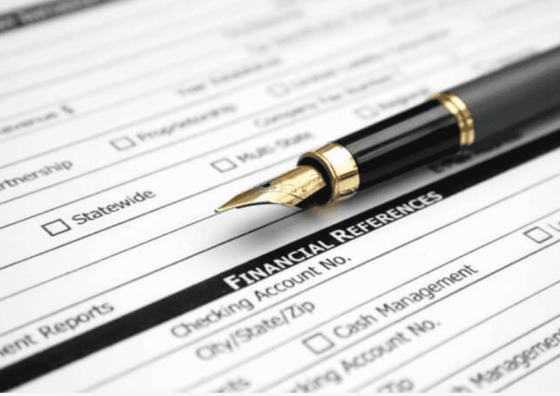If you’re anything like the average American, then you could probably use a few tips on how to stop spending money. After all, the average US household has just over $6,000 in credit card debt.
Most of us are guilty of spending too much cash from time to time. Impulsive spending can quickly become a habit, whether it’s for buying that new fancy outfit we don’t need or splurging on a lavish dinner.
If you’re looking to curb your spending, there are a few simple tips you can follow.
Become Aware of Your Spending Habits
One of the easiest ways to stop wasting money is to be aware of your spending habits. This means taking a close look at how you are spending your money and what you are spending it on.
Do you tend to spend a lot of money on things you don’t really need? If so, try to cut back on those expenses. For example, if you spend a lot of money on unnecessary fashion items, try to shop less often or only buy items on sale.
Understand Your Spending Triggers
Did you know there are many psychological reasons for overspending? These so-called spending triggers are causing you to spend money, even when you don’t really want or need to.
For example, some people have an urge to go out to eat whenever they feel stressed. If you can identify your triggers, it will be easier to avoid them.
Some common spending triggers include:
- Boredom
- Stress
- Peer pressure
- Feeling happy or excited
- Feeling sad or angry
How to overcome them? Find a different activity to do instead of going shopping.
For example, if your trigger is boredom, try playing Wordle or go for a walk instead of buying something. If your trigger is stress, try working out or meditating instead of ordering a meal via DoorDash.
Set a Monthly Budget
If you feel you’re spending too much money every month, you need to set your monthly budget. This way, you will be able to track your expenses and make sure you’re not spending more than you can afford. Once you have a budget, stick to it! This can be difficult at first, but it will get easier with time.
For example, let’s say that you have a budget of $100 for groceries each month. This means that you can’t spend more than $100 on groceries in any given month. If you feel you’re gonna go over it, try raiding your pantry before reaching for extra cash. You might get surprised with what recipes you can come up with!
Make a List of Your Expenses
“I spend all my money, but I don’t know what I spend it on” — in that case, you need to become fully aware of what drains your cash. To do this, make a list of all of your expenses. This includes your fixed expenses, like rent or mortgage, and your variable expenses, like food and entertainment.
Example:
- Rent: $800
- Mortgage: $1,500
- Food: $500
- Entertainment: $200
Once you understand how much money you are spending each month, you can start to look for ways to reduce your spending problem.
For example, if you’re spending $200 on entertainment each month, maybe you can find cheaper ways to have fun, like going for walks, making a movie night at home, or playing Never Have I Ever, Pictionary, or Uno.
You can also track your spending. For example, keep a journal of your expenses. This means writing down everything that you spend money on in a month on paper or in Excel, or try using a budgeting app. There are many different apps available, so find one that works well for you.
Tracking your spending will help you see how much cash you are spending each month.
Avoid Using Credit Cards
To bring overspending to an end, steer clear of using credit cards. This can be challenging if you are used to using credit cards for everything, but it is important to remember that credit cards are not free money.
They are loans that you will have to pay back with interest. If you only use cash, you will be less likely to squander your money.
If, however, you often use your credit card for online purchases, buy only things you would have bought anyhow, not the things you couldn’t previously afford, or set a monthly spending limit.
Set Your Financial Goals
To stop excessive spending, you need to have a plan. This means that you need to set financial goals.
For example, if you want to save up for a new car, you will need to figure out how much money you need to save each month. Once you have a goal in mind, it will be easier to resist the urge to spend your Benjamins on unnecessary things.
Start Saving Money
Finally, one of the best ways to reduce spending your whole paycheck on a whim is to start saving. If you are not used to saving money, this may seem like a daunting task. However, there are many simple ways to start saving money each month.
For example, you can set up a savings account and have a certain amount of money automatically transferred into it each month. Or, you could start using coupons and discounts to save money on your everyday expenses.
A bonus tip: If you’re up for it, try the 52-week money-saving challenge. Not only is it a fun and easy way to save some cash, but it can also help you save more than $1,000 per year.
Conclusion
So, how to avoid frivolous spending? Be mindful of your spending habits. There are many different ways to do this, but it all comes down to making a conscious decision not to spend unnecessarily and being proactive about finding deals and discounts.
By following these tips, you can put yourself in a much better position to curb your spending and save some money in the process.
FAQs
How do I motivate myself to stop spending money?
Ask yourself why you are trying to save money. Is it to buy a new car, go on a vacation, or pay off debt? Having a specific goal in mind will help you stay motivated when trying to stop spending cash.
You can also start by setting savings milestones. For example, if you are trying to save $1,000, you can set a goal to save $200 every month for the next five months. Having smaller goals will help you see your progress and keep you motivated to continue saving.
How can I train my mind to not spend money?
Start by doing the following exercises:
- Keep track of how many stores you enter. This includes grocery stores, convenience stores, clothing stores, etc. Determine your baseline number. How many shops did you visit on average? 5–10? Now, try to decrease the number by half.
- Make a purchase decision tree. Every time you are about to make a purchase, ask yourself a series of questions to help you make a more informed decision. For example: Do I need this? Is there a cheaper alternative? By asking yourself these questions, you will begin to train your mind to think more critically about your spending.
- Find an alternative dopamine booster. For some people, shopping can be a dopamine-boosting activity. If this is true for you, find alternative activities that will give you the same dopamine release without involving cash. Some examples include: going for a run, listening to good music, spending time with friends or family, reading, etc.
How do I stop spending so much money?
There are a few simple steps that you can take to stop spending your hard-earned cash on a whim.
First, make a list of your expenses and look for ways to reduce your spending. Second, track your spending so that you can see where your money is going. Third, create a savings plan so that you can save up for big purchases instead of buying them right away.
Finally, if you want to know how to stop spending money right now, avoid using credit cards and set short or long-term financial goals.






